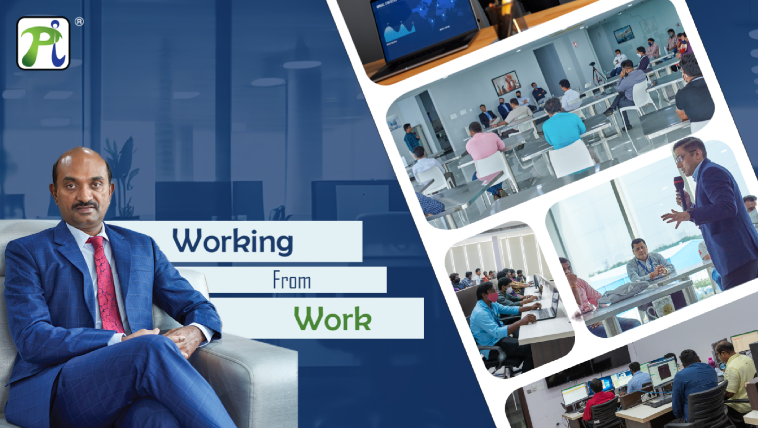
In this post-COVID era characterized by rapid technological advancements, the allure of remote work and the convenience it offers have captured the attention of professionals worldwide. While the comforts of working from home or a cozy café may seem enticing, it is crucial to acknowledge the undeniable advantages that are uniquely experienced in an office setting. As the popularity of remote working continues to soar, it is imperative to recognize the substantial benefits that can only be realized when physically present in the workplace.
The recent graduates who have spent the past three years working remotely from home have missed out on invaluable exposure to a formal and professional working environment. The initial five years of one's career hold immense significance as they lay the foundation for the subsequent fifteen years. Consequently, the lack of exposure to a formal working environment among the younger generation will undoubtedly have a profound impact on their career choices, particularly in management and leadership roles.
Working from the office offers a myriad of advantages, from heightened productivity and improved collaboration to the vital human connection that thrives in face-to-face interactions. It presents a win-win situation for both employees and employers alike.
Collaboration and Teamwork: Offices inspire collaboration and teamwork like no other. Communicating, sharing ideas, and solving problems in real time is easier when colleagues are present. Face-to-face chats, brainstorming, and impromptu collaborations boost team cohesiveness, productivity, and efficiency.
Building Strong Relationships: Interaction is crucial to professional development. At the workplace, you can establish deep ties with coworkers and superiors. Sharing meals, having informal chats, or doing team-building activities may help foster lasting relationships outside of work. These connections may lead to mentoring, professional growth, and a better workplace.
Professional Development: Offices provide several options for professional development. Workshops, seminars, and in-house training are available to employees. Working with seasoned experts and mentors may also help employees enhance their careers.
Mentorship and Skill Development: Employee mentorship commonly occurs in the workplace. Younger personnel can learn from more experienced colleagues, obtaining expertise and ideas that may not be easily communicated through virtual encounters. Supervisors can provide rapid feedback, assistance, and professional development through face-to-face communication. Casual chats like coffee breaks and lunches allow for networking and idea sharing.
Professional Image: Working from an office can contribute to a professional image, both for individuals and the organization as a whole. It can instill confidence in clients, stakeholders, and partners and convey a sense of stability and commitment to the work being performed.
Work-Life Balance: Remote employment may make it hard to combine work and life. Working from the office creates a routine and structure, ensuring job responsibilities are met within set hours. This arrangement provides for better planning, productivity, and personal time after work.
Well-Equipped Work Environment: Offices typically have essential resources and infrastructure, such as high-speed internet, specialized software, ergonomic furniture, and dedicated office supplies. These facilities can significantly enhance productivity and create a conducive work environment that is specifically designed to support efficient work processes.
Nurturing a Sense of Belonging and Company Culture: The office represents a company's culture and ideals. Being at the workplace lets employees experience and contribute to the company culture. Shared traditions, social activities, and informal office contacts promote employee-company bonds. Offices offer mentoring, career development, and networking, which can enhance a professional career.
Boosting Creativity and Innovation: Collaboration and diversity in the office may inspire creativity and innovation. The presence of diverse coworkers promotes idea exchange and innovation. Coffee chats or random meetings might reveal new ideas. Offices typically provide brainstorming rooms, collaboration spaces, and resources that encourage creativity.
In conclusion, while remote work has undoubtedly transformed the way we work, the office environment remains an irreplaceable asset for professionals seeking unparalleled advantages. From the collaborative atmosphere and interpersonal relationships to the separation of work and personal life, the office provides a unique space for professional growth and development.
Moreover, the office environment is conducive to professional development, offering in-house training programs, workshops, and seminars. Working alongside experienced professionals and mentors provides invaluable insights and guidance, propelling employees forward in their careers.
By embracing the office as a physical embodiment of company culture and values, employees can foster a sense of belonging and contribute to a unique atmosphere. Shared traditions, social events, and casual interactions further strengthen the connection between employees and the organization.